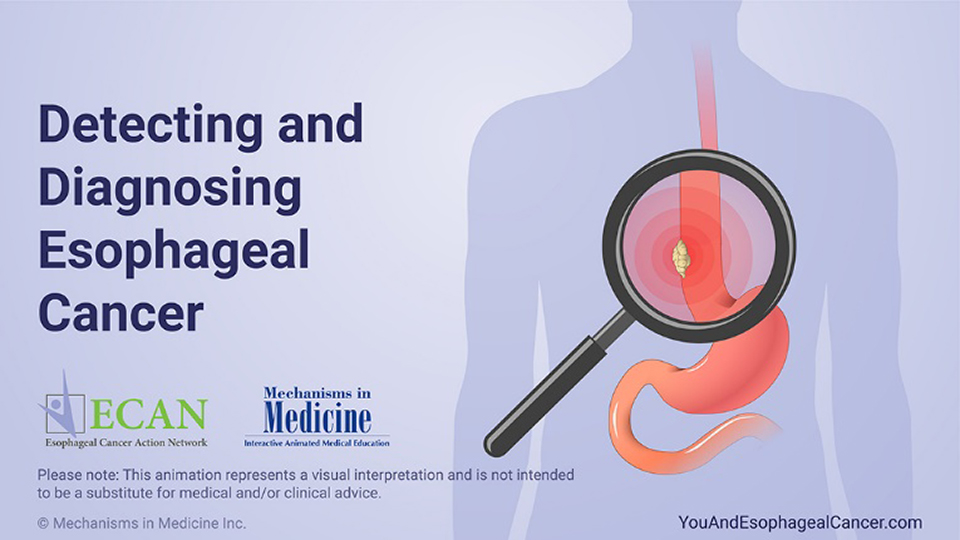Animation - Treating and Managing Esophageal Cancer
This animation provides an overview of the treatment and management of esophageal cancer. The treatment plan for esophageal cancer is based on your diagnosis, including the type and stage of cancer. Watch to learn about treatments including endoscopic therapy, chemotherapy, radiation, targeted therapy, immunotherapy, surgery (esophagectomy), and clinical trials. You can also learn about nutrition, mental health support, exercise, symptom relief, and survivorship care after treatment ends. Visit www.ecan.org for more information and support through your treatment and survivorship journey.
Click here to take our SURVEY
Your feedback is important to us! We will use your feedback to develop future areas of content about esophageal cancer which will help other patients, caregivers and families.























